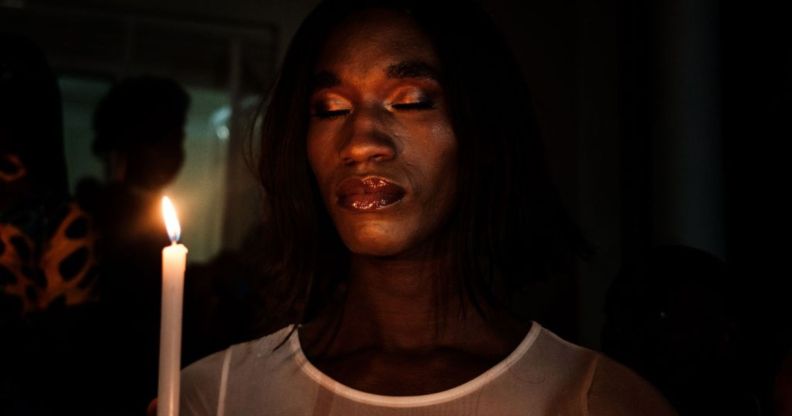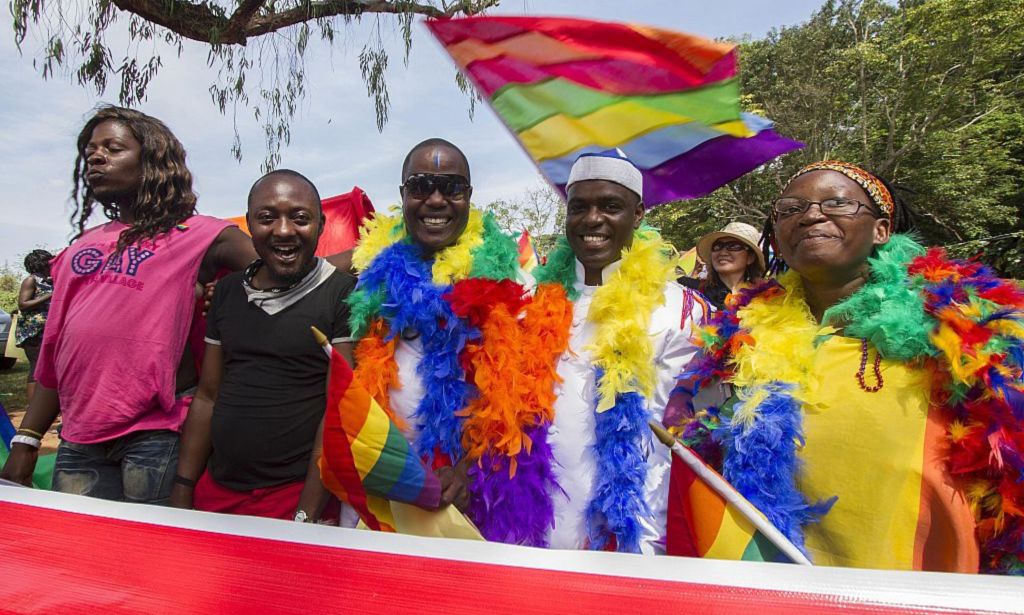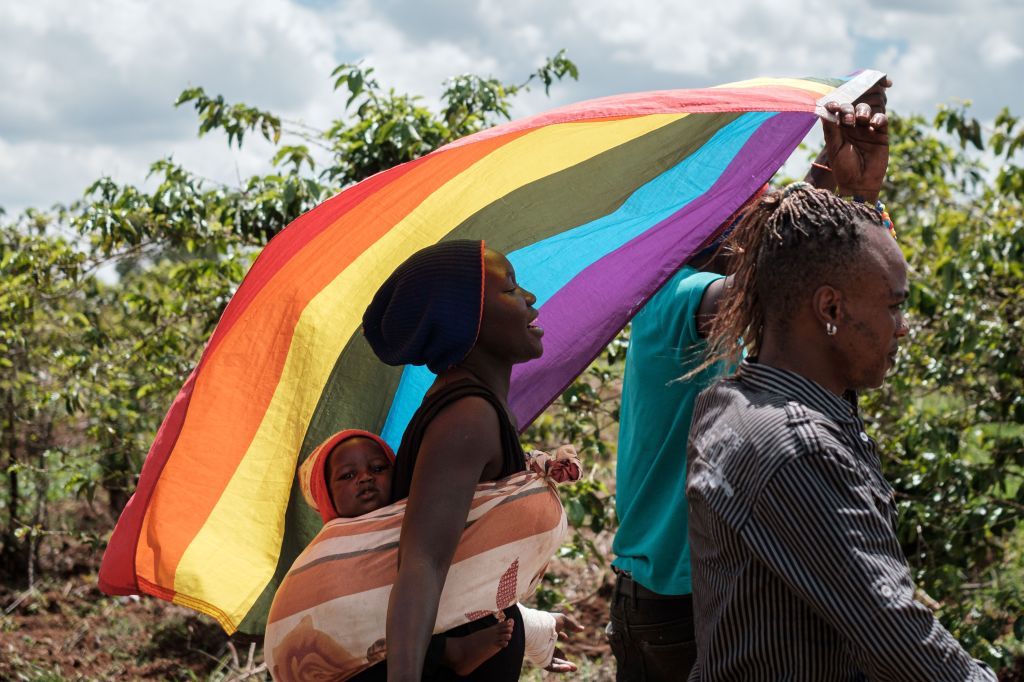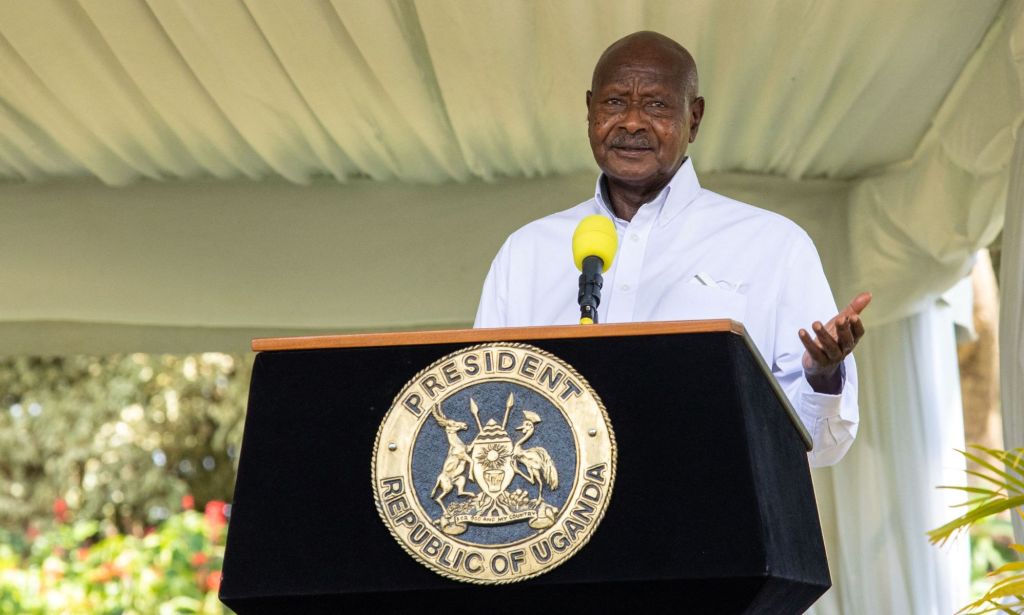Uganda’s anti-LGBTQ+ bill is result of ‘coordinated’ push by evangelical and foreign groups

A member of Uganda’s LGBTQ+ community pictured at a vigil. (Getty)
Conservative groups and evangelical Christians both inside and outside Africa are partly responsibly for Uganda’s anti-LGBTQ+ bill
The Ugandan government is facing intense international pressure to scrap the Anti-Homosexuality Bill, which would make it illegal to simply identify as LGBTQ+.
If the bill becomes law, those found guilty could face up to 20 years in prison, while those convicted of “aggravated homosexuality” could be executed.
The legislation is just the latest effort to further criminalise and marginalise LGBTQ+ people in Uganda. An earlier act, colloquially referred to as the ‘Kill the Gays’ bill, was struck down by the constitutional court in 2014, although homosexuality remained criminalised.
Such laws don’t spring up out of nowhere.
In 2020, an Open Democracy investigation found that more than 20 US-based groups known for fighting LGBTQ+ and abortion rights had funnelled at least $54 million (close to £41 million) into African countries since 2007.

One of the biggest spenders is the Fellowship Foundation, a US-based religious group that spent more than $20 million (approximately £16 million) in Uganda alone, according to the independent international media platform.
The issue has garnered significant attention over the years, with high-profile US-based evangelicals linked to efforts to reinforce discrimination in African countries.
Christian Rumu, a senior campaigner with Amnesty International, tells PinkNews: “What we’re observing is a push from conservative networks across the [African] continent. We also understand that there are external actors – evangelical groups, for instance – financing this push.
“If you look at the bill that is being debated in Ghana, for instance, there are some similarities with what has just been passed in Uganda, so there seems to be some co-ordination and collaboration around criminalisation across the continent.”
Rumu says there is “quite a lot of investment” from conservative groups across the world who are trying to push anti-LGBTQ+ bills across Africa because they’re getting little traction in the West.

“Since they are failing to pass these policies in the West, they’re bringing that fight to Africa.”
The consequences of Western interference will be felt most keenly by Uganda’s LGBTQ+ community, who face an “increased fear of violence” even if the country’s president, Yoweri Museveni, vetoes the bill.
“It’s really worrying to see that members of parliament are failing to truly do their job by introducing legislation that would protect marginalised communities, such as the queer community in Uganda,” Rumu says.
“We are seeing MPs going against what is their constitutional mandate and trying to criminalise the queer community, and we know that this is going to lead to targeted violence.”
Rumu also says the proposed legislation could be part of the Ugandan government’s efforts to distract from economic turmoil.
“We know that Uganda is facing quite a serious socio-economic crisis with inflation and unemployment, so targeting the queer community and rallying the crowds around homosexuality seems to be an easy way out to distract people from discussion about how to improve the economy.”

Amnesty International is calling on the president to veto the bill and to “abide by the constitution”.
Rumu says: “This bill goes against the principle of equality. Discrimination does not line up with the law of the land. That’s a very important message that we hope the officials in Uganda will listen to.”
Uganda condemned for ‘disgraceful treatment’ of LGBTQ+ community
Uganda’s latest effort to further criminalise LGBTQ+ people has been roundly condemned by human rights groups and LGBTQ+ activists across the world.
Téa Braun, the chief executive of Human Dignity Trust, said it represented a “disgraceful treatment of human beings”.
She added: “In passing this bill, Uganda slides hugely backwards with this clearly unlawful step.”
Human Rights Watch said the law will “violate the rights to freedom of expression and association, liberty, privacy, equality, freedom from discrimination, inhuman and degrading treatment, and a fair hearing” – all of which are guaranteed under Ugandan and international law.
“[President] Museveni should reject the bill and parliament should introduce comprehensive non-discrimination legislation that would protect sexual and other minorities in line with Uganda’s international obligations,” a spokesperson said.
The UN high commissioner for Human Rights, Volker Türk, described the bill as devastating and deeply disturbing.
“The passing of this discriminatory bill – probably among the worst of its kind in the world – is a deeply troubling development,” he said. “This law, if signed into force, will have serious negative repercussions on society as a whole, and erode gains made over years.”
The Fellowship Foundation was contacted for comment.
How did this story make you feel?

